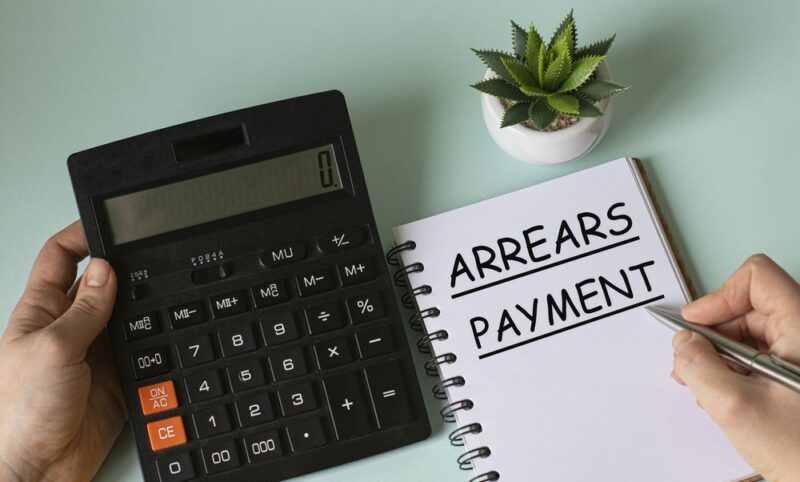Surge in Rent Arrears Sparks Call for Landlords to Protect Their Investments
UK landlords are being prompted to make sure they have appropriate strategies in place to protect their property investments following a recent surge in rent arrear cases. With government data revealing that rent arrears amongst private tenants have increased, and almost two thirds of landlords reporting that they’ve had to absorb arrears-related losses from their savings, it is vital that some form of landlord rent arrears insurance is in place to mitigate future financial issues.
UK landlords are being prompted to make sure they have appropriate strategies in place to protect their property investments following a recent surge in rent arrear cases. With government data revealing that rent arrears amongst private tenants have increased, and almost two thirds of landlords reporting that they’ve had to absorb arrears-related losses from their savings, it is vital that some form of landlord rent arrears insurance is in place to mitigate future financial issues.
The latest Household Resilience Study reveals that in April-May 2021, seven per cent of private renters were in arrears. This is up from three per cent in 2019/20, the equivalent of more than 780,000 renters.
A further nine per cent expressed that they anticipated falling behind with their rental payments over the next 12 months, and 27 per cent reported facing difficulties in covering their heating costs during the same period. In light of this, the National Residential Landlords Association (NRLA) is warning that many tenants are likely to find it a challenge to settle COVID-related rent debts, particularly with rising bills making things worse.
What’s more, 61 per cent of landlords who’d offered at least one of their tenants a rent-free or deferred rent period during the second quarter of the year ended up absorbing the losses from their own savings, according to research conducted by BVA/BDRC for the NRLA.
All of this serves to show how important it is for landlords to take steps to protect their investments from the threat of rent arrears. But what should these steps be?
How to protect your buy to let investment from the increased risk of rent arrears?
Insurance would seem the obvious choice, but it is vital to be aware of the differences between landlord insurance, rent guarantee insurance and guaranteed rent.
Landlord insurance cover is designed to protect against the typical risks associated with letting property. It usually includes buildings and contents insurance, and some policies will also include property owners’ liability cover, with loss of rent and tenant default insurance optional extras.
However, landlords are well advised to carefully check precisely what is covered in this respect, as sometimes it will be the case that loss of rent claims will only be paid if the tenants have been forced to move out of the property due to a disaster, such as a fire or flood.
Tenant default insurance will take care of the rent when tenants fail to make their payments. Do check the special conditions attached to this cover though, as it may be that you have to wait until the payments are behind by a month and the official eviction process has begun, and then the policy will only pay out for a set period, perhaps six to twelve months.
This type of cover will usually have limits in place as well, which could mean you won’t see all of your rental income recoverable. Plus there may be excess to pay, and if your tenants have a poor payment history, then you may not qualify for the cover at all.
The only type of landlord rent arrears insurance that will guarantee that your rent is paid every month, even when tenants default and even when the property is untenanted, is a guaranteed rent scheme.
How does a guaranteed rent scheme work?
Guaranteed rent schemes should not be confused with rent guarantee insurance. This is something very different.
A rent guarantee scheme involves entering into a contract with a third party, such as a letting agent or property management company, or a local council. The third party takes control of the property, acting as the tenant. They then pay a fixed monthly income to the landlord over an agreed period, even if the property is untenanted during this period.
There won’t be any need to make a claim, there is no excess to pay, and landlords also get to enjoy a full property management service into the deal, including tenant sourcing and referencing, property repairs and maintenance, compliance checks, inventory reports and regular mid-term inspections. Legal costs will also be covered.
To discover how the homes2let guaranteed rent scheme works, whether rent guarantee schemes are worth it, and how the dedicated homes2let team can help reduce the heightened risks associated with the recent surge in rent arrears, we welcome you to get in touch.
Related Insights

Floods in Rental Properties: A Landlord’s Responsibilities
The Environment Agency says that there are over five million properties in England that face a risk of flooding. Landlords are right to worry over their responsibilities should a flood become a problem, especially if it leads to the property becoming uninhabitable. It is therefore useful to know what would be expected of you as a landlord in the event of a flood. Precisely what we are covering in this post.

Landlords Encouraged to Seek Alternatives to High Rent Advance Demands
According to a Radio 5 podcast, increasing numbers of landlords are asking tenants with a poor credit score or lack of renting history to part with six months’ rent in advance. The situation has been made worse by the effects of the COVID-19 pandemic, with incomes hit hard. But the NRLA advises against demanding such high advances, suggesting that an alternative guaranteed rent solution is sought.

How UK Planning Law Reforms Could Benefit Property Investors
In its report titled Planning for the Future published in late summer, the government detailed plans for upcoming changes to the planning system in England. The reforms are set to streamline and modernise the planning process and should also spell good news for anyone interested in property investment. Let’s explore why.







